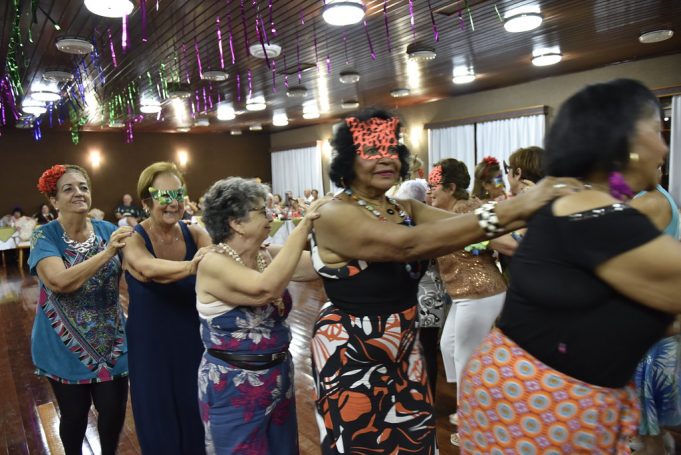
Hostels and Budget Accommodation – 10 tips for survival
Budget travel would not be complete without the budget accommodation that we require to keep us in the lifestyle to which we have become accustomed. The places we either love or hate, where we meet our new travelling mates, old friends from back home, clubbing buddies, future partners, flatmates and in some cases our future spouse. By spending less on our beds we hope to spend more on experiencing the local culture. In the following paragraphs there are a few suggestions to make that budget bed all the more bearable.
The quality of a youth hostel is not necessarily measured by the creature comforts it provides, such as high pressure hot showers or cable TV, but more by the people, the staff and fellow travellers that make your time there, however short, more memorable. Anyone who has spent an extended amount of time living in close quarters with other human beings will understand the physical and mental adjustments that come with it. You find out just how tolerant you really are and work out new ways to make it survivable.
You may have shared a bedroom with a sibling as a child but that does not really compare to sharing with possibly, for the first time, the opposite sex and from two or three people up to 20 or more. Most travellers just beginning their travels would be shocked and horrified at the thought of dressing and undressing in front of an audience let alone putting up with all the assorted habits of a diverse range of roommates. But after a few months on the road however it all becomes second nature.
Now, there has been a real renaissance in the European hostel industry recently with owners realising there is no longer a benefit in providing substandard type accommodation. The backpackers will vote with their feet and now thanks to the internet with their fingers to inform the rest of the world to avoid the place like the plague. Occasionally though you will find a bunch of individuals willing to tough it out in cramped rooms, less than sanitary bathrooms, and downright scary kitchens purely for the social atmosphere. They like who they are sharing with.
A single sex dorm is usually the first choice for many first timers, but don’t be fooled. Even those you would consider to maintain a reasonable standard of communal etiquette can turn out practically feral, girls included.
Tip one, keep an open mind on sharing. Small dorms are preferable over large ones even if they are more expensive. You get to know who you are sharing with pretty quickly and roommates are potential gold mines for additional travel information. Sharing with guys can also be a bonus. They usually know where all the fun is going on.
Here’s tip two. For those trying to maintain any kind of privacy hanging a sarong or large towel from the bunk above as a curtain is one option, provided you are on the bottom. The sarong is definitely preferable as it is light to carry. And if you only take a tiny travel towel that sprint to the bathroom for a shower is made a little easier if you can wear the sarong as a wraparound. It also doubles as shower curtain in some places. It is a very versatile piece of material.
Wearing flip-flops in the shower is another prime tip. Most places will ensure the showers are cleaned at least once a day but when you consider the high numbers of people using them as well coming from all over the world there is a risk eventually of coming into contact with a foot fungus. Not particularly fun nor easy to get rid of. The flip-flops keep your feet off the floor and hopefully further away from any risk of catching some fungal nasty.
Tip four is for those who are light sleepers or become homicidal axe wielding maniacs at the sound of ear drum splitting snorers- ear plugs. Brilliant on long haul flights as well these things may just save your sanity if the guy in the bunk above sounds like a chainsaw on full throttle at 4 in the morning.
Tip five is to carry some kind of a pocket knife. In this age of tightened airport security this may sound like the wrong advice but if it stored in your pack that is checked into the hold it should be ok. Some hostels have kitchen facilities but may lack in some vital utensils. Tin openers invariably never work, sharp knives aren’t, and sometimes even something as simple as a teaspoon may be non existent. A pocket knife with a decent blade length and can opener is invaluable.
Tip six is to make use of the safety deposit boxes where you are staying. Ok, not every roommate is a thief. We would like to believe all our fellow travellers are just like us, out to see the world, make new friends, experience new cultures and customs, find new horizons and for the majority that is correct. Nearly everyone you will come into contact with will have a similar attitude to travel as you and would never cheat a fellow backpacker. However there is a minority out there that can make it unpleasant for the rest of us. If you are staying somewhere with a pretty transient clientele, people arriving and leaving every five minutes put all the important stuff behind reception for peace of mind. It also makes sense when going out. Only take what you’re going to spend. Most places have safety boxes for free or a small fee.
Tip seven is to take your own padlock. Some places have lockers but rent out the padlocks. You may also want to consider some kind of backpack chain to secure the pack to the bunk if there is no locker and you don’t trust where you are staying. There are some fishing-net like chains specifically designed for packs available, fairly lightweight and they fit over your entire pack or case. Just don’t lose the keys.
Tip eight sounds strange but take a bungee cord. This is an elastic rope that can extend out to make a clothesline or curtain rail. Great if you have to do hand washing and can’t get to a dryer. It only needs to be about 1 metre long and preferably with clips or hooks at either end.
Tip nine is to take a sleep sheet and a pillow case. Most places provide linen now for an additional charge or even included in the price but where this isn’t available it is handy to have a sleep sheet. Some stores sell sleep sheets already made that are treated to prevent bed bugs or you can easily make your own by stitching a double sheet down one side. Smaller and lighter than carrying a sleeping bag and easier to wash, it is ideal for travel in the summer through hot destinations. A pillow case can be useful for making a pillow by stuffing it with clothes if there isn’t one and can even make do as an emergency towel.
Tip ten is to accept those differences. Hostels come in all shapes, sizes and styles. There can be good and bad hostels in large and small destinations. A large and popular hostel in the city may have less atmosphere than a tiny pension in a remote village. You may find the bar, party crowd and DJ downstairs impossible to leave after a week. You could also discover the cool Aussie, South African and Canadian guys you’ve been sharing a room with for a month want to go see the pyramids in September when you want to go and they have transport. You may even learn your roommate has more questionable personal habits than your own. All of these experience serve to teach us more about ourselves.
My last point is not a tip but the eleventh commandment, thou shalt not have any noisy plastic shopping bag of any sort in your backpack. Even the most mild mannered, easy going and placid individual will be itching to heave a meat cleaver between the ears of someone rummaging inside their plastic bags, especially if it is at 5am in the morning and all they can hear is the demented rustling of the plastic. If you must insist on having the wretched thing at least drag the pack into the hallway to find what you are looking for and leave your roommates to sleep in peace. They will thank you for it.
Keep these in mind and whatever you discover through your hostelling experiences, about yourself and the rest of your fellow travellers, the good and the not so good, they will all remain an unforgettable part of your travelling adventures.









